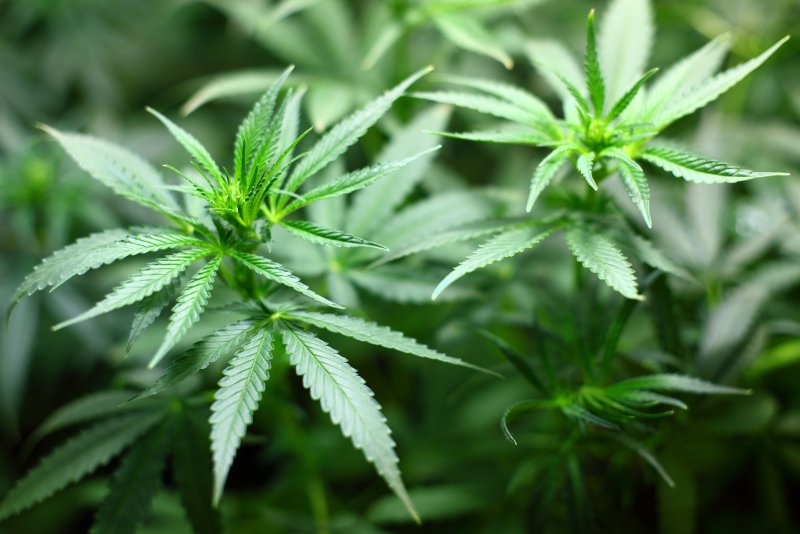Researchers found mice with pancreatic cancer that were treated with medical cannabis and chemotherapy survived almost three times longer than those treated with chemotherapy alone. Photo by 7raysmarketing/
Pixabay
July 31 (UPI) -- Mice with pancreatic cancer that were treated with medical cannabis and chemotherapy survived almost three times longer than those treated with chemotherapy alone, according to a new study.
Researchers at Queen Mary University of London and Curtin University in Australia tested the effects of
cannabidiol, a naturally occurring constituent of cannabis sativa plant, with the commonly used chemotherapy medication Gemcitabine. The findings were published Monday in Oncogene.
"This is a remarkable result," Dr. Marco Falasca, a researcher at Queen Mary, said in a press release. "Cannabidiol is already approved for use in clinics, which means we can quickly go on to test this in human clinical trials."
In June, the FDA approved for the first time a drug derived from marijuana to treat epilepsy, as well as the first medication of any kind for Dravet syndrome. This drug is made from cannabidiol.
The pancreas, located in the abdomen, helps regulate blood sugar. With a five-year survival rate of only 8.5 percent, according to the U.S. National Cancer Institute the key to treating pancreatic cancer is to detect it sooner or associate it with a risk factor. As it is, about 80 percent of patients are diagnosed with pancreatic cancer at a late stage.
"The life expectancy for pancreatic cancer patients has barely changed in the last 40 years because there are very few, and mostly only palliative care, treatments available," Falasca said. "The discovery of new treatments and therapeutic strategies is urgently needed."
Tetrahydrocannabinol, or THC, the cannabinoid known to cause the psychoactive effects of cannabis, is not present in cannabidiol.
The researchers said the substance is also known to improve the side effects of chemotherapy, including nausea, diarrhea and vomiting.
"If we can reproduce these effects in humans, cannabidiol could be in use in cancer clinics almost immediately, compared to having to wait for authorities to approve a new drug," Falasca said.















